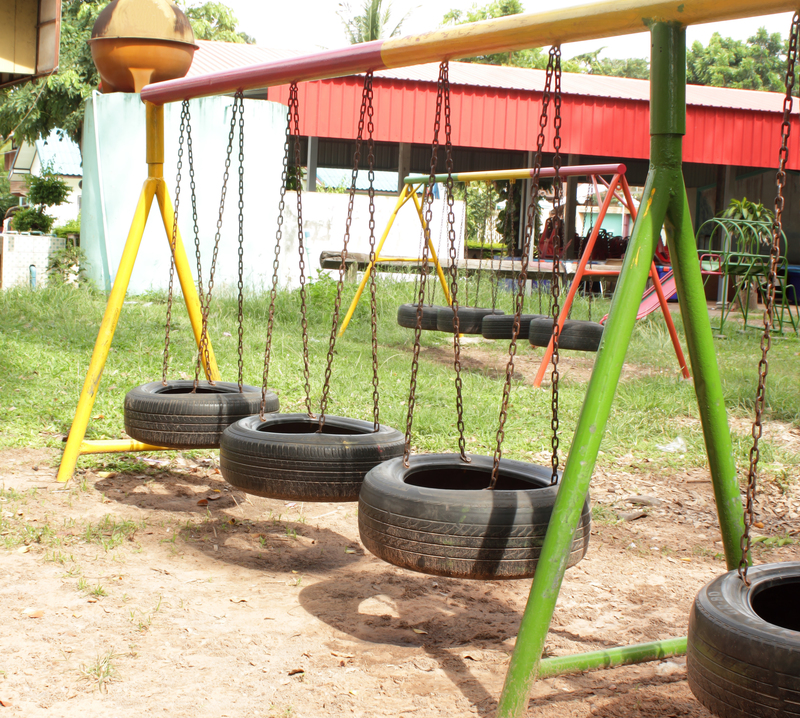Avoid Overpaying for Bulky Waste Removal With These Hacks
Getting rid of large or cumbersome junk can quickly lead to high costs -- bulky waste removal services often surprise households and businesses with expensive fees. However, did you know there are smart tricks and methods to minimize these expenses? In this comprehensive guide, you'll discover the best cost-saving strategies to avoid overpaying for bulky waste removal, enabling you to clear out your space sensibly and affordably.
What is Bulky Waste?
Bulky waste refers to large items that are too heavy, oversized, or awkward for regular curbside collections. Common examples include:
- Old furniture (sofas, beds, wardrobes)
- Large appliances (fridges, freezers, ovens)
- Exercise equipment
- Mattresses and box springs
- Carpets and rugs
- Garden furniture
- DIY or renovation waste
Because of their size and materials, disposing of these objects the usual way isn't possible. Bulk trash removal companies often step in, but their services aren't always budget-friendly. Below are actionable hacks to help you avoid spending more than necessary.

Why Do People Overpay for Bulky Item Removal?
An average homeowner or tenant can unintentionally overpay for bulky items disposal because of:
- Lack of knowledge about affordable alternatives
- Overpriced junk removal companies
- Last-minute removal needs
- Lack of upfront cost transparency
- Poor sorting and preparation of items
Understanding how to plan and research will keep your bulky junk removal costs low and manageable.
Hacks to Avoid Overpaying for Bulky Waste Removal
1. Research Your Local Council's Bulky Waste Services
Before calling a private company, check if your local authority offers free or discounted bulky waste collection. Many councils and municipalities provide scheduled pickup days or vouchers for residents. You could:
- Visit the council's website to find collection schedules
- Book your pickup slot in advance to avoid rush charges
- Understand what items are accepted (often limited to furniture, appliances, or branches)
Pro Tip: Some councils restrict the number of pickups per year, so plan carefully and group items to maximize each collection.
2. Donate Usable Items to Charities
Many large charities (such as Goodwill, Salvation Army, or local non-profits) accept furniture and appliances in good condition. Most also offer free collection -- saving you money while supporting your community.
Before arranging bulky rubbish disposal, ask yourself:
- Is this item still usable?
- Would a charity take it and collect it for free?
You'll avoid landfill fees, and someone else benefits from your unwanted items.
3. Sell or Give Away Items Online
Websites like Facebook Marketplace, Craigslist, Freecycle, and Gumtree make it easy to find a new home for bulky goods. Simply take clear photos, write detailed descriptions, and highlight if the buyer must pick up the item.
- Price items for a quick sale or list them as "free to collect"
- Mention any stairs, parking restrictions or accessibility issues
- Set a collection deadline so it's gone before your planned clear out
This approach earns you money (or at least saves you removal costs) while reducing landfill waste.
4. Use "Man and Van" Services for Cheaper Removal
Did you know? Not all junk removal companies charge the same. Local "man and van" operators often have much cheaper rates for bulky items than national waste companies. To find the best deal:
- Get quotes from at least three different providers
- Ask if there are discounts for weekday or off-peak collections
- Bundle as many items as possible into one trip to save on pickup fees
- Check that waste carriers are licensed and insured
Comparison shopping is crucial -- don't go with the first quote you get.
5. Break Down Large Items Yourself
Removal companies usually charge by volume or weight. Disassembling furniture or appliances reduces the space your waste takes up, resulting in lower fees. Here's what to do:
- Unscrew or dismantle sofas, beds, or tables
- Remove non-recyclable components (such as cushions, foam, or glass parts)
- Group similar materials (wood, metal, plastic) to ease recycling
*Always follow safety precautions and check with your removal service about their packing requirements.
6. Visit Your Local Recycling Centre
Most local waste and recycling centres (tips or civic amenity sites) accept bulky household waste for free or a small fee. It's an excellent way to avoid pricey curbside collections, particularly if you have access to a van or large car.
- Call ahead to verify accepted items and ID requirements
- Plan to sort your waste for faster drop-off and recycling
- Borrow or hire a van with friends to split costs, if needed
*Note some sites are for residents only and may have weight or quantity limits.
7. Time Your Clear-Out to Align With Bulk Waste Events
In many areas, the council holds free bulk waste collection events a few times a year. Take advantage by:
- Following your city or borough's waste services online
- Joining community social media groups for announcements
- Storing items until the next collection event, if safe to do so
These events are especially great for clearing out large quantities of bulky rubbish without costs.
8. Ask Friends or Neighbours to Share Removal Costs
Are others nearby also planning a declutter? Pooling together bulky items significantly cuts the price per household. When hiring a removal van, the cost is often determined per vehicle or trip, not per item.
- Organize a "junk amnesty" weekend in your street
- Share the contact details of trusted removal firms
- Split the gas and disposal fees fairly
It's win-win: saves cash, fosters community spirit, and minimizes environmental impact with fewer separate vehicle trips.
9. Beware of Hidden Costs and Rogue Traders
Not all clearance companies are legitimate -- illegal fly-tippers often pose as cheap waste collectors. This can lead to fines if your rubbish is dumped illegally. To avoid this:
- Always ask to see the company's waste carrier license
- Get written quotes detailing all potential fees
- Request a transfer note for your own records
Cutting corners may be tempting, but reliable removal doesn't have to cost the earth if you're vigilant.
10. Explore Producer Take-Back Schemes for Appliances
Retailers of large electrical items (fridges, washing machines, TVs) sometimes offer free disposal of old products when you buy new ones. It's called a producer take-back scheme. Always ask about:
- Free or discounted appliance collection at delivery
- Details on how the old item is recycled (for your peace of mind)
- Eligibility if you're replacing similar branded goods
Quick Comparison: Ways to Reduce Bulky Waste Removal Costs
| Method | Pros | Cons |
|---|---|---|
| Charity Donation | Free collection, benefits others | Must be in good condition |
| Sell/Give Away Online | Potential profit, eco-friendly | Time needed to arrange collection |
| Council Service | Often free or low-cost | Limited slots, item restrictions |
| Man & Van Service | Convenient, negotiable rates | Need research for legit providers |
| Recycling Centre Drop-off | Affordable, promotes recycling | Access and vehicle required |
Frequently Asked Questions About Bulky Waste Removal
What qualifies as bulky waste?
Bulky waste usually includes items too large or heavy for everyday garbage, such as furniture, mattresses, appliances or large outdoor equipment. Construction debris and hazardous waste usually require specialist disposal.
How do I find legitimate, affordable bulky item disposal near me?
Start by searching your local council's website for their recommended providers. You can also use independent reviews on Google, Yelp, or Trustpilot -- always confirm licenses and avoid suspiciously low quotes.
Is it illegal to leave bulky items on the curb?
In most places, dumping bulky rubbish on public land or curbs without arranging council collection is illegal and can lead to fines. Always book a legitimate service.
Can I use skips for bulky waste?
Yes -- skips are suitable for many types of bulky waste, but can be costly. Minimize costs by sharing with neighbors or choosing the right skip size to fit your load.

Top Tips for Saving Money and the Environment
- Reduce Before Removing: Only get rid of items you can't repair, reuse or upcycle.
- Plan Ahead: Scheduled clear-outs give you time to find the most cost-effective solution.
- Sort for Recycling: Separate wood, textiles, metals and electronics for easier, possibly free, disposal.
- Verify Providers: Avoid fines by ensuring all removal services are licensed and ethical.
- Check Tax Deductions: Some charity donations can be written off at tax time - consult your accountant.
Conclusion: Say Goodbye to Overpaying for Bulky Junk Removal
Getting rid of old furniture or appliances doesn't need to cost a fortune. By making use of local council schemes, family or neighbor cooperation, charity collection, and competitive research, you can avoid overpaying for bulky waste removal. Plan ahead, stay eco-friendly, and always prioritize reliable, legal disposal options.
With these bulky waste disposal hacks, you'll declutter more efficiently, save money, and help protect your environment.
Ready to clear your space without breaking the bank? Take these tips and start your affordable bulky waste removal journey today!
